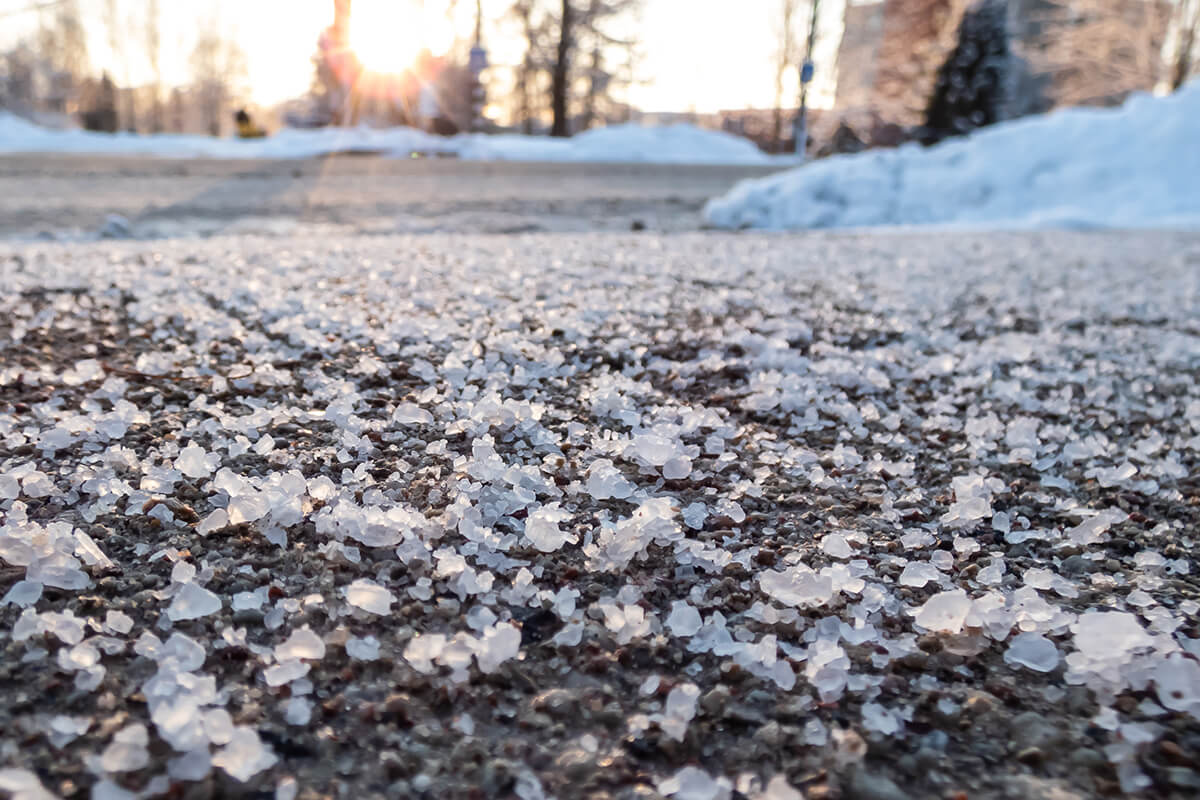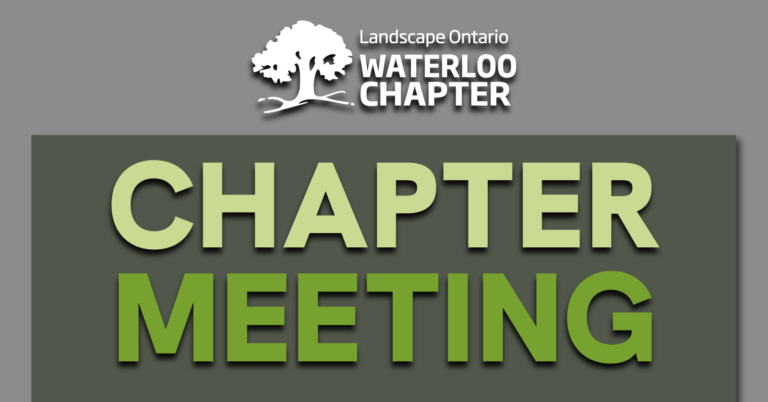Shifting the paradigm on road salt: A call for a Limited Liability Framework in Ontario
A new report highlights the immense pressure of liability on winter maintenance decisions, hindering the adoption of more sustainable, salt-reducing practices by contractors and owners
A recent comprehensive study on winter road maintenance in Ontario reveals a critical barrier preventing the widespread adoption of best management practices (BMPs) that could significantly reduce road salt usage: the overwhelming burden of liability. Titled "Shifting the Salt Paradigm: Identifying Challenges in Adopting Winter Road Best Management Practices," the report surveyed 37 medium-sized municipalities across the province and found that a staggering 80 per cent of them see liability concerns as a strong influence on their operational choices. For the members of Landscape Ontario (LO), this finding is not a surprise, but a long-overdue validation of the daily pressures faced by snow and ice contractors who are often left to deal with liability alone, without a shared burden with property owners.
Authored by Jacob Shaddock from the University of Waterloo, the research underscores a fundamental conflict: while there’s a growing desire to embrace more environmentally friendly and ultimately cost-effective methods, procurement by owners, owners’ agents and managers is done poorly — ignoring the unique issues for sites which results in poorly drafted levels of services (LOS) and scopes of work. Contractors and municipalities fear litigation in the current environment, which pushes them to an over-reliance on traditional road salt. This cycle of over-salting comes at significant environmental and economic costs, leading to salt shortages and damage to infrastructure like roads, bridges, waterways and vehicles.
The weight of liability on best practices
The study’s findings paint a clear picture. While cost-effectiveness (78 per cent), improved performance (66 per cent) and environmental concerns (59 per cent) are key drivers in selecting materials and methods, liability concerns loom large, often overriding all other factors. This pressure is a significant roadblock to the adoption of proven BMPs like anti-icing and pre-wetting, which are currently used by only 53 per cent and 44 per cent of the surveyed municipalities, respectively. These methods, when properly implemented, can lead to more efficient and reduced salt use.
The report also sheds light on the fact that 43 per cent of municipalities contract out some or all of their winter road operations. While 82 per cent of these contractors reportedly receive the same training as municipal staff, the lack of formal recognition for that training remains a problem. Ontario’s liability framework can hold contractors responsible for outcomes beyond the scope of work or level of service outlined in the contract, while overlooking deficiencies in procurement. This places an immense burden on private contractors, discouraging them from reducing salt application rates or adopting innovative materials and techniques due to fear of legal repercussions.
A path forward: Capped liability for certified professionals
The report puts forward a powerful recommendation that directly supports LO’s advocacy for a limited liability framework. The author suggests the provincial government should revisit its current liability legislation to alleviate the pressure on both municipal staff and contractors.
One promising model highlighted is New Hampshire’s Green SnowPro program, which grants liability protection to certified individuals and those who hire them. LO also supports the Illinois model legislation, which prevents owners from transacting out of their independent acts of negligence. Together, the installation of both legislative approaches incentivizes proper procurement based on risk mitigation practices and mandates fulsome training and adherence to best practices. LO has developed a robust Snow and Ice Management Training Program that focuses on safety, environmental responsibility, and operational performance which would be recognized under New Hampshire model legislation while owners who adhere to established procurement practices share liability protections if compliance is proven. A provincial limited liability framework for all involved would be a game-changer as all parties bear responsibilities, which leads to improved levels of services or standard operating procedure risk management planning and includes education as a requirement.
By providing liability protection for contractors and owners who are trained and accredited and, in the case of owners, follow proper procurement practices, the province can ensure site services are assessed at the beginning of the contract and deemed appropriate, while concurrently empowering contractors to use their professional judgment to apply the right amount of salt for the conditions, rather than over-applying out of fear. This shift to an all-stakeholder model will lead to far better protection of the environment and infrastructure and is a fair system based on risk management principles and strong education.
Key supports for a sustainable future
The report identifies several key supports that municipalities believe would help them overcome barriers to BMP implementation:
- Increased funding opportunities (70%)
- Enhanced training and educational programs for staff and contractors (67%)
- Incentives or subsidies for adopting sustainable practices (67%)
- Collaboration with other municipalities to share best practices (63%)
A limited liability framework, tied to accreditation, directly addresses the need for enhanced training and provides a powerful incentive for adopting sustainable practices.
The evidence is clear. The current liability landscape in Ontario is a major impediment to reducing our reliance on road salt. By working with the provincial government to establish a limited liability framework for certified snow and ice professionals and owners, we can create a win-win situation: protecting owners and our members if they follow what is reasonably prescribed, safeguarding Ontario’s environment and ensuring the safety of our communities through risk management and sustainable winter maintenance.
It’s time to shift the paradigm and embrace a future where procurement is performed properly and best practices, not fear, guide our actions.
Resources and more reading
View the full report online: Identifying Challenges in Adopting Winter Road BMPs – Final Report.pdf
Learn more about Landscape Ontario’s Snow and Ice Management Training Program







